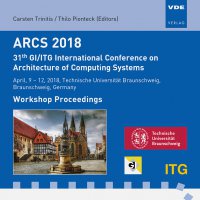PyFI - Fault Injection Platform for Real Hardware
Konferenz: ARCS Workshop 2018 - 31th International Conference on Architecture of Computing Systems
09.04.2018 - 12.04.2018 in Braunschweig, Germany
Tagungsband: ARCS Workshop 2018
Seiten: 7Sprache: EnglischTyp: PDF
Persönliche VDE-Mitglieder erhalten auf diesen Artikel 10% Rabatt
Autoren:
Osinski, Lukas; Langer, Tobias; Schmid, Michael; Mottok, Juergen (Laboratory for Safe and Secure Systems - LaS3, Technical University of Applied Sciences Regensburg, Germany)
Inhalt:
Today, due to the rapidly evolving technology within the automotive industry, the automation level of cars is continuously increasing. As a consequence, the software code base implementing the automated driving functionality is growing in both, complexity and size. Simultaneously, the semiconductor industry continues with structure and voltage downscaling due to diminishing design margins and stringent power constraints. This trend leads to highly integrated hardware on the one hand, whilst provoking an increase in sensitivity against external causes for hardware faults, e.g., radiation effects or electromagnetic interference. Among the available dependability assessment techniques, fault injection (FI) is widely adopted and ISO 26262 strongly recommends applying it to validate, that functional and technical safety mechanisms are implemented correctly and effectively. We present PyFI (Python backend for Fault Injection), a fault injection backend for the Infineon Aurix TriCore which utilizes an iSystem On-chip Analyzer to inject faults into the application data or instructions that are visible at the assembly level. PyFI allows the injection of bit flips and stuck-at faults in memory and register cells of the hardware which trigger our error symptoms on application level. Furthermore, it implements fault collapsing algorithms to reduce the number of faults and the duration for single experiments by gathering statistics about the static and dynamic application execution.


